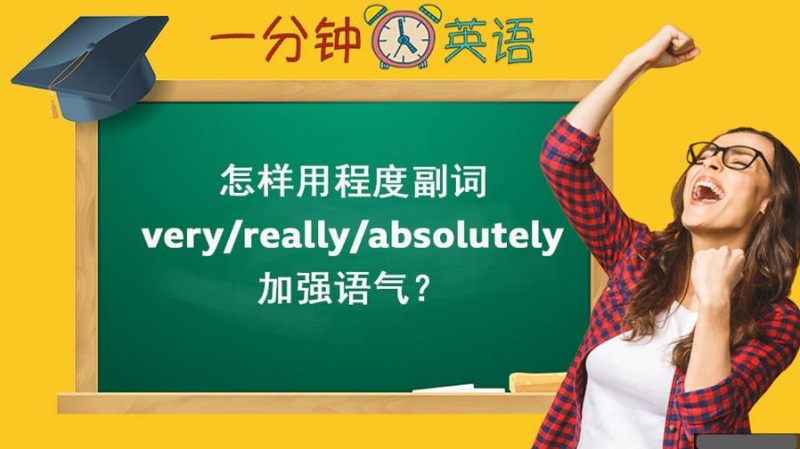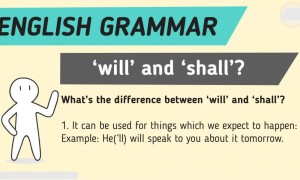本集内容
英语中的程度副词用来对形容词和副词加以修饰或限定。常见的程度副词包括 “very、really、absolutely”。程度副词通常出现在被修饰的形容词或者副词之前。看视频,学习如何使用程度副词来加强语气。
文字稿
Welcome to BBC Learning English! I’m Sam, and today I’m happy. In fact, I’m very happy. I’m really happy. Thrilled. I’m really thrilled. I'm absolutely thrilled!
My happiness keeps getting bigger and bigger.
I started with the word 'happy'. 'Happy' is a gradable adjective, so I can be:

happy here… (medium hand gesture)
quite happy here… (low hand gesture)
very or really happy here (high hand gesture).
What’s another way to say very or really happy? 'Thrilled'.
'Thrilled' is not a gradable adjective, it’s an extreme adjective, it’s already up here (high hand gesture), so can we make it stronger?
Yes! You can use really. I’m really thrilled. Or absolutely. I’m absolutely thrilled. But you can't use very.
用法总结
1. 形容词 “happy(高兴的)” 是可分级形容词,前面可以使用程度副词来加强语气。
I’m very happy.
I’m really happy.
2. 形容词 “thrilled(非常高兴的)” 是极端形容词,本身已经有 “非常” 的意思,前面只能用程度副词 “really/absolutely” 来加强语气。
I'm really thrilled
I'm absolutely thrilled.







